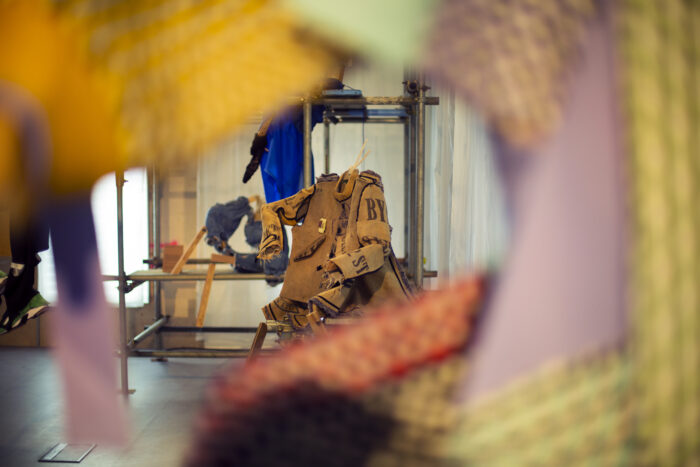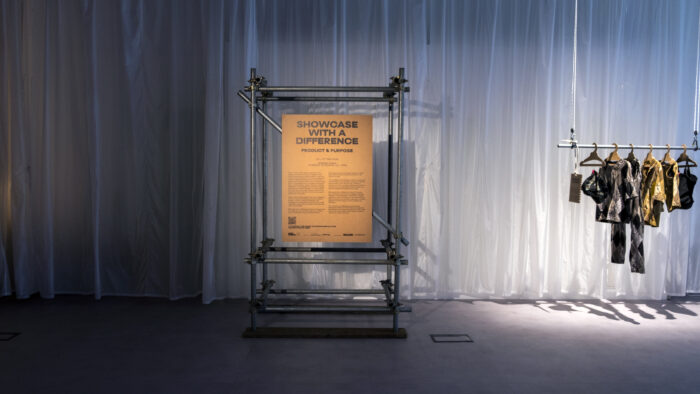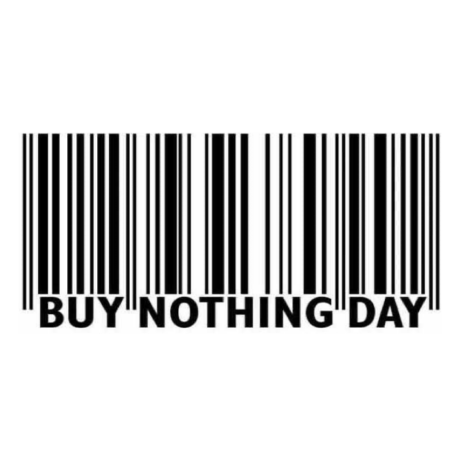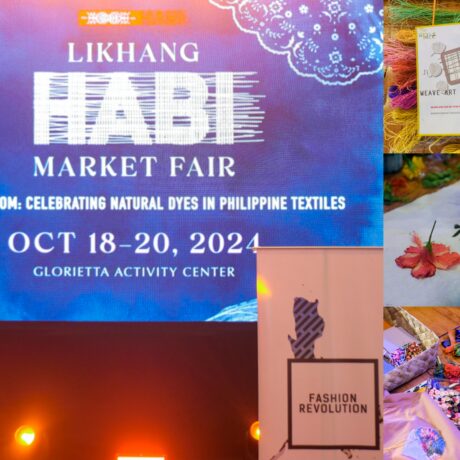Fashion Open Studio presents Showcase With A Difference
Fashion Open Studio is Fashion Revolution’s showcasing and mentoring initiative which champions the designers, textile artists and small fashion brands that are showcasing inspiring solutions to the social and environmental issues in the fashion industry.
Last month, we hosted a Showcase With a Difference, an exhibition featuring 10 designers with a focus on product and purpose. The showcase explored how the clothes in the exhibition were made, and gave us an understanding of why and how these designers are rejecting the industry’s bad habits. The aim was to change the ways we all think about our clothes and the processes and purpose behind them. The installation was brought to life by a programme of workshops and events demonstrating how clothes can be made in ways that are local, create and nurture community, promote wellbeing and positivity, and embrace more equitable business models that value the people and the planet over profit.
Showcase With A Difference took place at The Lab E20, a unique creative space in East London, and was supported by Get Living, Future City and Mayor of London. It was art directed by award-winning designer Matthew Needham, who specialises in combining materials, experience, and community to create works that are both educational and conscious, inspiring a symbiotic approach towards living our lives in parallel with the planet.

As part of our curation, we asked each of the designers featured in the showcase ‘What is your purpose was as a designer?” and here are some of their responses…
‘My purpose is to encourage more sustainable, conscious and circular methods of creating and consuming fashion so that we can still enjoy clothes and accessories without harming our planet and people.’
‘My purpose is to use my brand Anciela as a creative platform that showcases not only fashion but also other Latinx creatives in London. Embracing collaborative experiences across disciplines and encouraging a sense of community and inclusivity.’
‘The brand focuses on the mental health aspect in their design language to nurture and support the necessity to address the high number of mental health problems in their generation and support the desire for connection and a wish for belonging and trust. Sustainability is for Marie as a trained tailor deeply ingrained in her DNA of making. To make processes and applications transparent is supporting this trust for her future wearer. Lueder aims to remember the connection between Human and Nature by working in ritualistic ways collaborating with energy healers and other professionals with a holistic approach.’
‘From the outset, my vision has been to innovate through artisanship and preserve skills. I am driven by the idea that fashion is more than just creating the next thing, but about designing new systems in order to guarantee real sustainable innovation through design that is people centred, environmentally responsible and inclusive. I hope to mainstream diversity by working with older people and fostering new relationships between local communities and the global industry landscape.’
‘Rahemur Rahman’s latest collection is a love story to children of the rag trade. Taking inspiration from the generations of Bangladeshis who call East London home, it is dedicated to the characters who have paved the way before him. The ‘rag trade’ is a colloquial British term for the immigrant-run clothing manufacturing businesses that were once the throbbing heart of Brick Lane. Since the early 00’s, the area has evolved into a cartoon of its former self — often celebrated as a hub of creativity, art and fashion, its local communities are often left in the shadows.’
‘To think about the circularity of each product. If we have a product in our archive that we haven’t sold, we will work into it again and again and develop the design so that it stays present. Turning habits into processes that can grow and making space for our tendencies. Collecting unused items to give them purpose. Understanding that people’s taste changes naturally- we take that when it’s in the process of being moved away from, and give a new life to the items that people don’t want. Going against the conventional fashion brand idea, and embracing designing as a trio but living apart, and how to make it work. To inspire and be inspired by like-minded thinkers. And value collaborators.’

We also asked designers featured in the showcase ‘What do you want to achieve with your work?’ Here is what they said…
‘My process focuses on artisanal techniques, which require a different appreciation for materials and where they come from, which is the case of the vintage napkins and crochet for this garment. It also connects me with many other experts in crafting, and these interchanges help us to develop a more conscious community. Upcycling is inevitable in my process as we are surrounded by waste. I work hard to give another chance to material, either looking into 2nd-hand/vintage garments, deadstock or innovation through new technologies in recycled materials.’
View this post on Instagram








